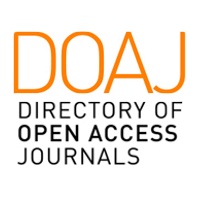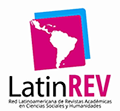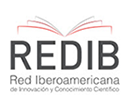Evaluación del profesor y las implicaciones en su desarrollo profesional: una revisión sistemática
DOI:
https://doi.org/10.31639/rbpfp.v11i22.275Palabras clave:
Desarrollo profesional, Evaluación docente, Trabajo colaborativoResumen
La evaluación que se realiza dentro del proceso de desarrollo profesional (DP) del maestro es uno de los principales desafíos para el sistema educativo. Mediante una revisión sistemática, pretendemos analizar e identificar factores inherentes al proceso de evaluación de los docentes y que influyen en su DP, así como analizar las potencialidades de la evaluación en DP. A partir de estos objetivos se definieron las palabras clave que guiaron la búsqueda realizada en diferentes bases de datos electrónicas seleccionadas (entre el período 2009-2019). Se seleccionaron diez estudios de acuerdo con los criterios de inclusión / exclusión previamente definidos para este estudio.
Los resultados de esta revisión sistemática muestran que la evaluación mejora el DP. Es ella (evaluación) que guía el proceso de DP, no solo a través de la propia formación del maestro, sino también al observar de cerca los componentes científico-pedagógicos del maestro, relacionando estos aspectos con factores como la motivación, el liderazgo y las relaciones profesionales.
Descargas
Citas
AVALOS, B. Teacher professional development in Teaching and Teacher Education over ten years. In Teaching and Teacher Education, 27 (1), 10-20. (2011).
AVIDOV-UNGAR, O. A model of professional development: teachers' perceptions of their professional development. In Teachers and Teaching, 22:6, 653-669. (2016).
BAKER, J., CHASELING, M., BOYD, W., & SHIPWAY, B. Teachers’ response to a new mandatory professional development process: does it make a difference? in Professional Development in Education, 44:4, 570-582. (2018).
BALAHADIA, F. F., FERNANDO, M. C., & JUANATAS, I. C. Teacher's Performance Evaluation Tool Using Opinion Mining with Sentiment Analysis. IEEE Region 10 Symposium, (pp. 95-98). Bali, Indonesia. (2016).
BORG, S. Evaluating the Impact of Professional Development. In RELC Journal, 49, 195–216. (2018).
BRADFORD, C., & BRAATEN, M. Teacher evaluation and the demoralization of teachers. in Teaching and Teacher Education, 49-59. (2018).
BRAMWELL, D., ANDERSON, S., & MUNDY, K. (2014). Teachers and Teacher Development: A Rapid Review of the Literature. Ontario Institute for Studies in Education University of Toronto - Canada: Aga Khan Foundation Canada .
COLDWELL, M. Exploring the influence of professional development on teacher careers: A path model approach. In Teaching and Teacher Education, 61, 189-198. (2016).
DANIELSON, C. New trends in teacher evaluation. In Educational Leadership (Vol. 5, pp. 12-15). Alexandria: ASCD's flagship publication (Association for Supervision and Curriculum Development). (2001).
DANIELSON, C. Enhacing profession a practice. A framework for teaching (3º ed.). Alexandria - USA: ASCD - Association for Supervision and Curriculum Development. (2013).
DARLING-HAMMOND, L. [et al] Evaluating teacher evaluation. Phi Delta Kappan, 96, 8-15. (2012).
DAVIS, E. A., & KRAJCIK, J. S. Designing educative curriculum materials to promote teacher learning (Vol. 34(3)). Educational Researcher. (2005).
DE KETELE, J.-M. A avaliação do desenvolvimento profissional dosprofessores: postura de controlo ou postura de reconhecimento? In M. P. Alves, & E. A. Machado, O Pólo de Excelência, Caminhos para a Avaliação do Desempenho Docente (pp. 13-31). Porto: Areal Editores. (2010).
DELVAUX, E. [et al] How may teacher evaluation have an impact on professional development? A multilevel analysis. In Teaching and Teacher Education, 1-10. (21 de Junho de 2013).
FULLAN, M. (1987). Implementing the implementation plan. In M. W. (eds), Staff development for school improvement. New York: Falmer Press.
GARCIA, C. M. Desenvolvimento Profissional: passado e futuro. In Sísifo – Revista das Ciências da Educação, n.2, 7-22. (Jan/Abril de 2009).
GIRVAN, C., CONNEELY, C., & TANGNEY, B. Extending experiential learning in teacher professional development. In Teaching and Teacher Education, 58, 129-139. (2016).
GOLDRICK, L. Improving Teacher Evaluation To Improve Teaching Quality. Washington, DC: Center for Best Pratices. (2002).
GRISSOM, J. A., & LOEB, S. Assessing principals’ assessments: Subjective evaluations of teacher effectiveness in low-and high-stakes environments. Education Finance and Policy, 369–395. (2017).
GUSKEY, T. R. Professional development and teacher change. Teachers and Teaching, 381-391. (2002).
HARGREAVES, A. O Ensino na Sociedade do Conhecimento: A educação na era da insegurança. Porto: Porto Editora. (2003).
HILL, H. C. Fixing teacher professional development. Phi Delta Kappa International, 90, 470-477. (2009).
IZADINIA, M. Teacher educators’ identity: a review of literature. In European Journal of Teacher Education, 37:4, 426-441. (2014).
KING, F. Evaluating the impact of teacher professional development: an evidence-based framework. In Professional Development in Education, 40:1, 89-111. (2014).
KRAFT, M. A., & GILMOUR, A. Can Evaluation Promote Teacher Development? Principals' Views and Experiences Implementing Observation and Feedback Cycles. Educational Administration Quarterly , 52, 711-753. (2016).
LEJONBERG, E., ELSTAD, E., & CHRISTOPHERSEN, K. A. Teaching evaluation: antecedents of teachers’ perceived usefulness of follow-up sessions and perceived stress related to the evaluation process. In Teachers and Teaching, 24:3, 281-296. (2018).
LOUCKS-HORSLEY, S. L. Designing professional development for teachers (3ª ed.). Thousand Oaks, California: Corwin Press. (2010).
MAGEE, D. Systematic reviews (meta-analysis) and functional outcome measures (apostila). Developmental Editor: B. Aindow. (1998).
MCCHESNEY, K., & ALDRIDGE, J. M. A review of practitioner-led evaluation of teacher professional development. In Professional Development in Education, 45:2, 307-324. (2019).
MURPHY, R. Testing Teachers: What works best for teacher evaluation and appraisal. Londres: The Sutton Trust and the Education Endowment Foundation. (2013).
REID, K., & KLEINHENZ, E. Supporting teacher development: Literature review. Canberra: Department of Foreign. (2015).
SHERMAN, R. [et al] Professional Development Resource Guide for Adult Educators. Washington, DC.: Pelavin Research Inst. (1998).
SHINKFIELD, A., & STUFFLEBEAM, D. Teacher Evaluation – Guide to effective practice. USA: Kluwer Academic Publishers. (1995).
SHULMAN, J. H. Case methods in teacher education. Chicago: Teracher Collega Press. (1992).
SPROTT, R. A. Factors that foster and deter advanced teachers’ professional development. In Teaching and Teacher Education, 321-331. (2019).
SU, Y., FENG, L., & HSU, C.-H. Accountability or authenticity? The alignment of professional development and teacher evaluation. In Teachers and Teaching, 23:6, 717-728. (2017).
SUBITHA G, V. Re-conceptualizing teachers’ continuous professional development within a new paradigm of change in the Indian context: an analysis of literature and policy documents. In Professional Development in Education, 44, 76-91. (2017).
SUGRUE, C. Rhetoric's and realities of CPD across Europe: from cacophony towards coherence? In C. D. (Org.), International Handbook on the Continuing Professional Development of Teachers (pp. 67-93). Maidenhead: Birks: Open University Press. (2004).
TAYLOR, E.S. & TYLER. The effect of evaluation on performance: Evidence from longitudinal student achievement data of mid-career teachers. Cambridge: National Bureau of Economic Research working paper. (2011).
THORPE, M. Handbook of Education Technology. (1998). Obtido de http://www2.rgu.ac.uk/celt/pgcerttlt/evaluating/eval2.htm: http://www2.rgu.ac.uk/celt/pgcerttlt/evaluating/eval2.htm
TORGERSON, C. (2003). Systematic Reviews. London: Continuum.
VILAR, A. M. O Professor Planificador. (4ª ed ed.). Porto: Edições ASA. (2000).
VILLEGAS-REIMERS, E. Teacher professional development:an international review of the literature. Paris: International Institute for Educational Planning. (2003).
WARRING, D. F. Teacher Evaluations: Use or Misuse?. In Universal Journal of Educational Research, 703-709, (2015).
Descargas
Publicado
Cómo citar
Número
Sección
Licencia
Los derechos de autor/a pertenecen exclusivamente a los autores. La Revista se publica bajo el derecho de licencia Creative Commons Attribution-NonCommercial 4.0 International (CC BY-NC-SA 4.0), en el que se permite compartir (mediante la reproducción y distribución del material en cualquier medio o formato) y adaptar (remix), alterar y crear material desde el contenido.































